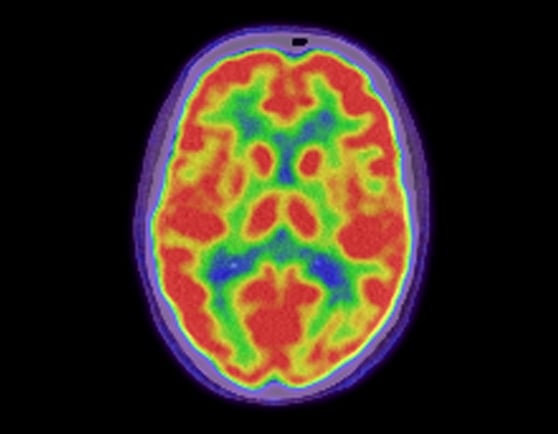Understanding Alzheimer’s Disease: A Clear and Compassionate Overview
Alzheimer’s disease affects millions of people worldwide and is the most common cause of dementia. For those newly confronted by this condition—whether as a patient or a caregiver—it can be overwhelming. This blog aims to explain Alzheimer’s in straightforward terms, offering hope, clarity, and actionable steps.
Dr. Sherif Makar
3/24/20253 min read


What Is Alzheimer’s Disease?
Alzheimer’s is a progressive neurological disorder where brain cells gradually lose the ability to function and communicate with each other. Over time, it leads to memory loss, difficulties with thinking and reasoning, and changes in behavior or personality. While it’s most commonly seen in older adults, it’s not a normal part of aging.
Early Signs and Symptoms
1. Memory Lapses
• Forgetting recently learned information—like appointments or conversations—more often than usual.
2. Difficulty Completing Tasks
• Finding it hard to cook a familiar recipe or keep track of monthly bills.
3. Language and Communication Issues
• Pausing frequently in conversation or struggling to find the right word.
4. Disorientation
• Getting lost in once-familiar places or losing track of dates and seasons.
5. Mood and Personality Changes
• Increased anxiety, suspicion, or withdrawal from friends and social activities.
If you notice these symptoms in yourself or a loved one, reach out to a healthcare provider. Early evaluation can make a significant difference in managing the disease.
How Alzheimer’s Progresses
• Mild Stage: Individuals may still function independently but might struggle with minor memory lapses and organizing daily tasks.
• Moderate Stage: Greater difficulty performing routine tasks like handling finances or meal preparation. The patient may need more consistent support from caregivers.
• Severe Stage: Extensive memory loss, confusion, and physical challenges (e.g., difficulty walking, swallowing) often require 24-hour assistance.
Diagnosis and Treatment
1. Medical Evaluation
• A doctor may conduct cognitive tests, review medical history, and order brain imaging (MRI or PET scans). Blood tests can help rule out other causes of memory issues.
2. Medications
• Certain drugs (e.g., donepezil, rivastigmine) aim to slow progression or ease symptoms like memory loss. These medications can be most effective when started early.
3. Lifestyle Adjustments
• Regular exercise helps maintain balance and cardiovascular health, potentially slowing cognitive decline.
• Healthy diet (rich in fruits, vegetables, whole grains) can support overall brain function.
• Social engagement—interacting with friends, joining community activities, or pursuing hobbies—may help keep the mind active.
4. Clinical Trials
• Ongoing research explores new treatments, including immunotherapies and blood-based biomarker tests. Participating in a clinical trial can offer early access to potential therapies.
Caring for Someone with Alzheimer’s
Communication and Patience
• Speak slowly and clearly. Keep sentences simple and provide extra time for them to respond.
Safe and Supportive Environment
• Reduce clutter, label common household items, and ensure good lighting to minimize confusion or accidents.
Structured Routine
• Consistent mealtimes, sleep schedules, and activities can help alleviate anxiety and restlessness.
Self-Care for Caregivers
• Taking time for respite, joining a support group, or seeking counseling is crucial. Caregivers often face burnout if they don’t attend to their own mental and emotional well-being.
Looking Ahead with Hope
Alzheimer’s is undoubtedly challenging, but early detection and proactive management can improve quality of life. Innovations in research—including better diagnostic tools and emerging therapies—are reason for cautious optimism. Meanwhile, forming a strong care network, maintaining a healthy lifestyle, and staying connected can provide comfort and support to those living with Alzheimer’s and their families.
Key Takeaways
• Alzheimer’s is a progressive disease impacting memory, thinking, and behavior.
• Early signs include frequent forgetfulness, difficulty completing familiar tasks, and personality changes.
• While there is no cure, medications, healthy habits, and care strategies can help manage symptoms and maintain a better quality of life.
• Support for both patients and caregivers—through structured routines, safe environments, and emotional help—is crucial.
Disclaimer: This blog is for general informational purposes and is not a substitute for professional medical advice. If you have concerns about Alzheimer’s disease or are experiencing potential symptoms, consult with a qualified healthcare provider.
For more information on neurology care and supportive services, feel free to explore our resources at Charis Neurology. You’re not alone in this journey—together, we can make life with Alzheimer’s more navigable and full of dignity.
Contact Us
Serving Central Florida
Seminole County
Lake Mary, Sanford, Longwood, Oviedo, Altamonte Springs, Winter Springs, Casselberry, Heathrow, Wekiwa Springs, Forest City, Sanlando Springs
Volusia County
Deltona, Orange City, DeBary, Lake Helen
Orange County
Orlando, Winter Park, Maitland, Apopka, Eatonville
Patient Center


Where precision medicine meets genuine compassion. We provide end-to-end diagnostics and treatment for the entire family under one roof.

© 2026 Charis Neurology. All rights reserved.
If you are experiencing a medical emergency, please dial 911 or go to the nearest emergency room. Do not use this website for urgent medical needs.
